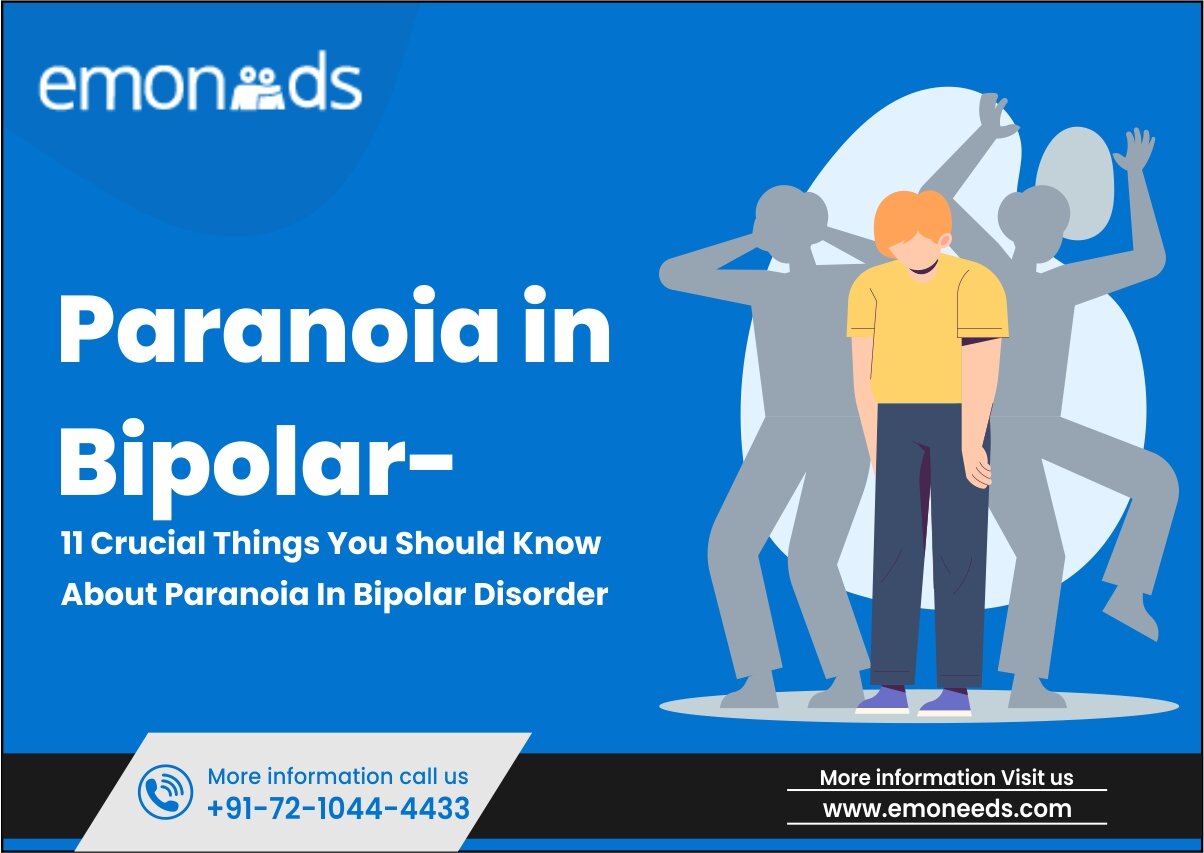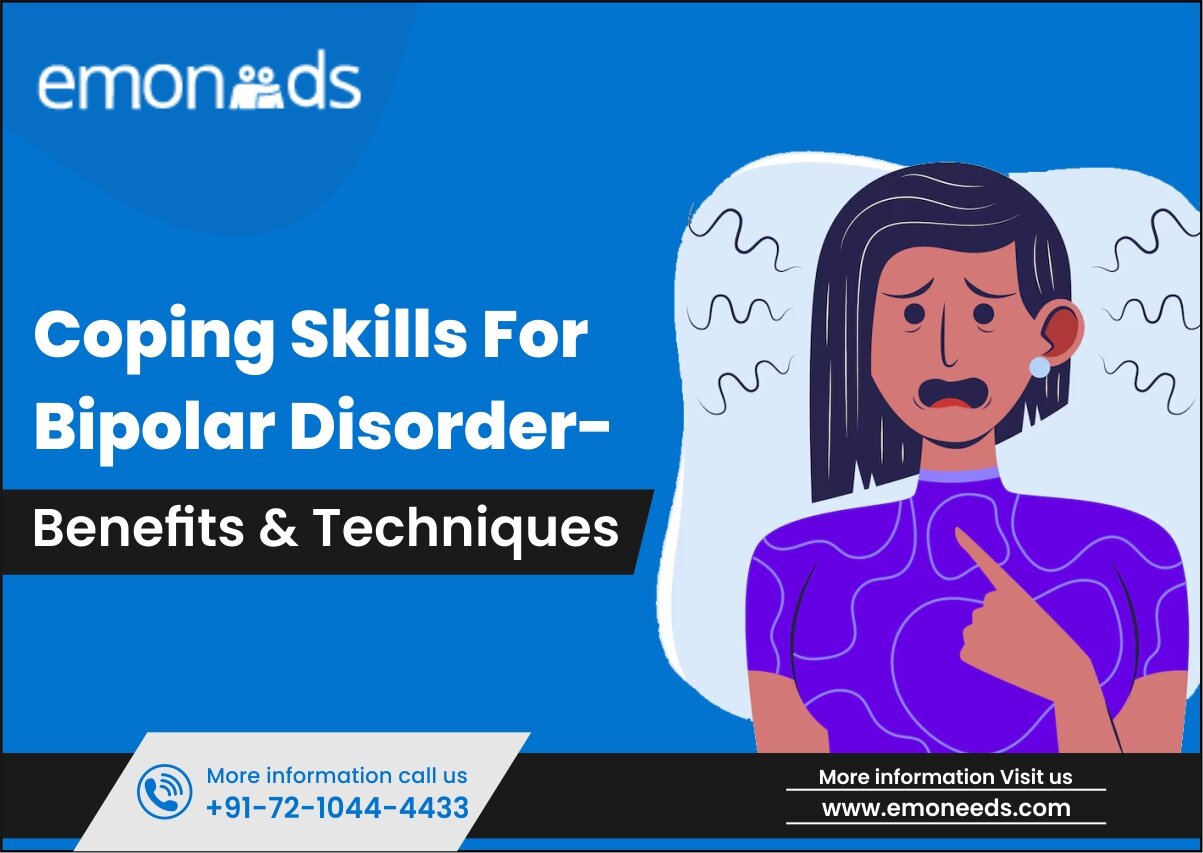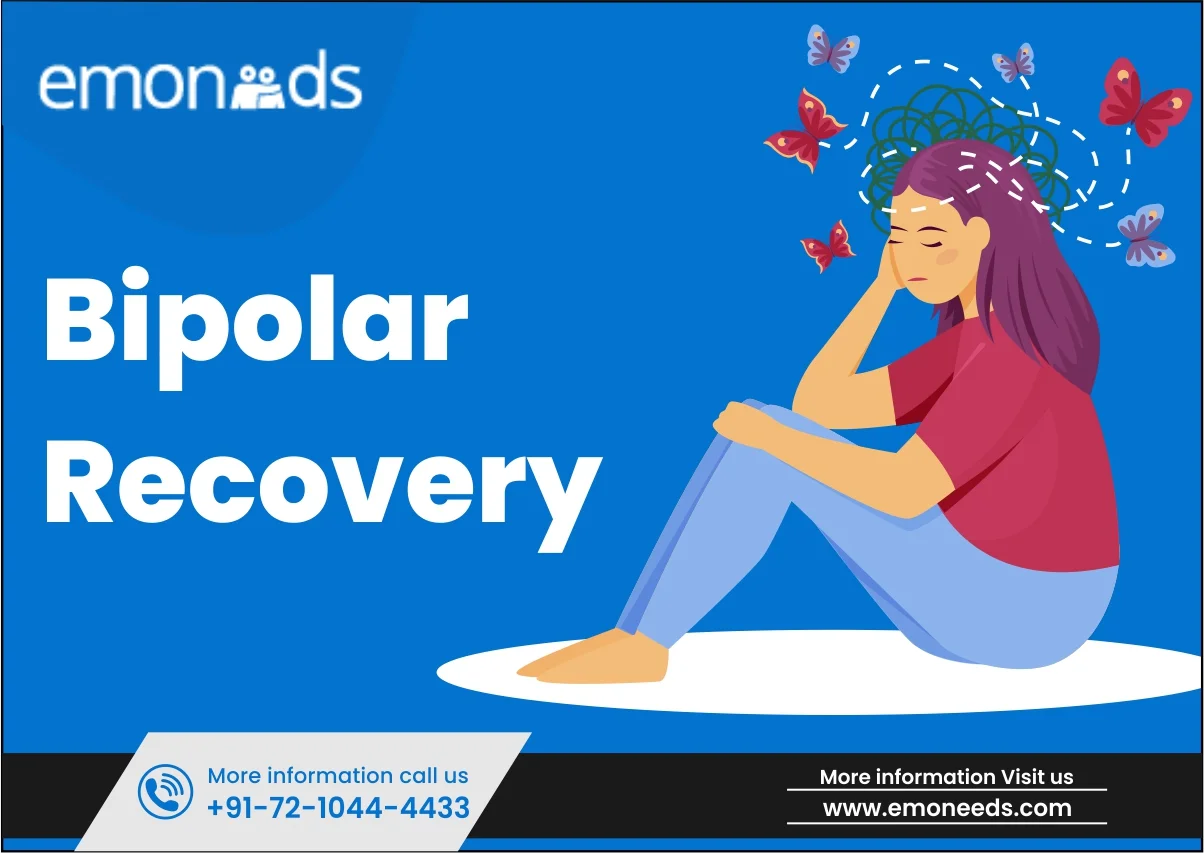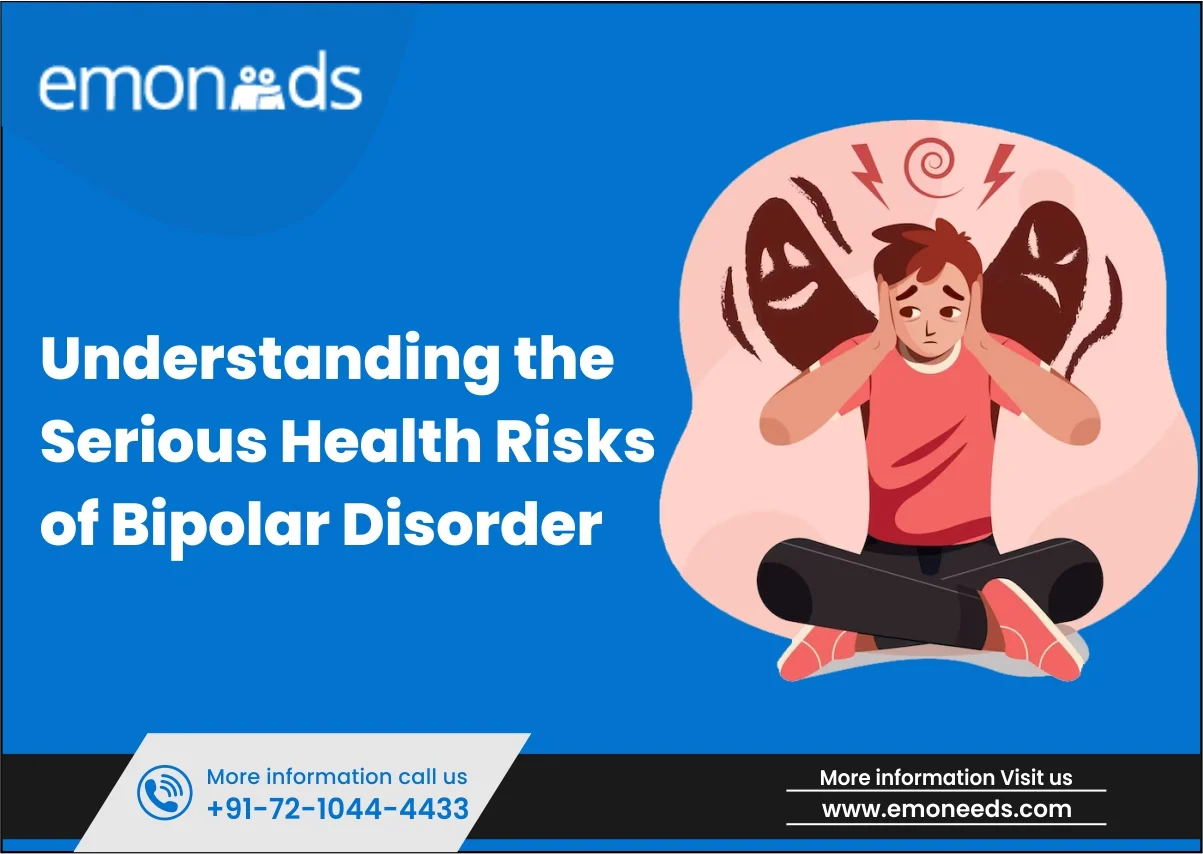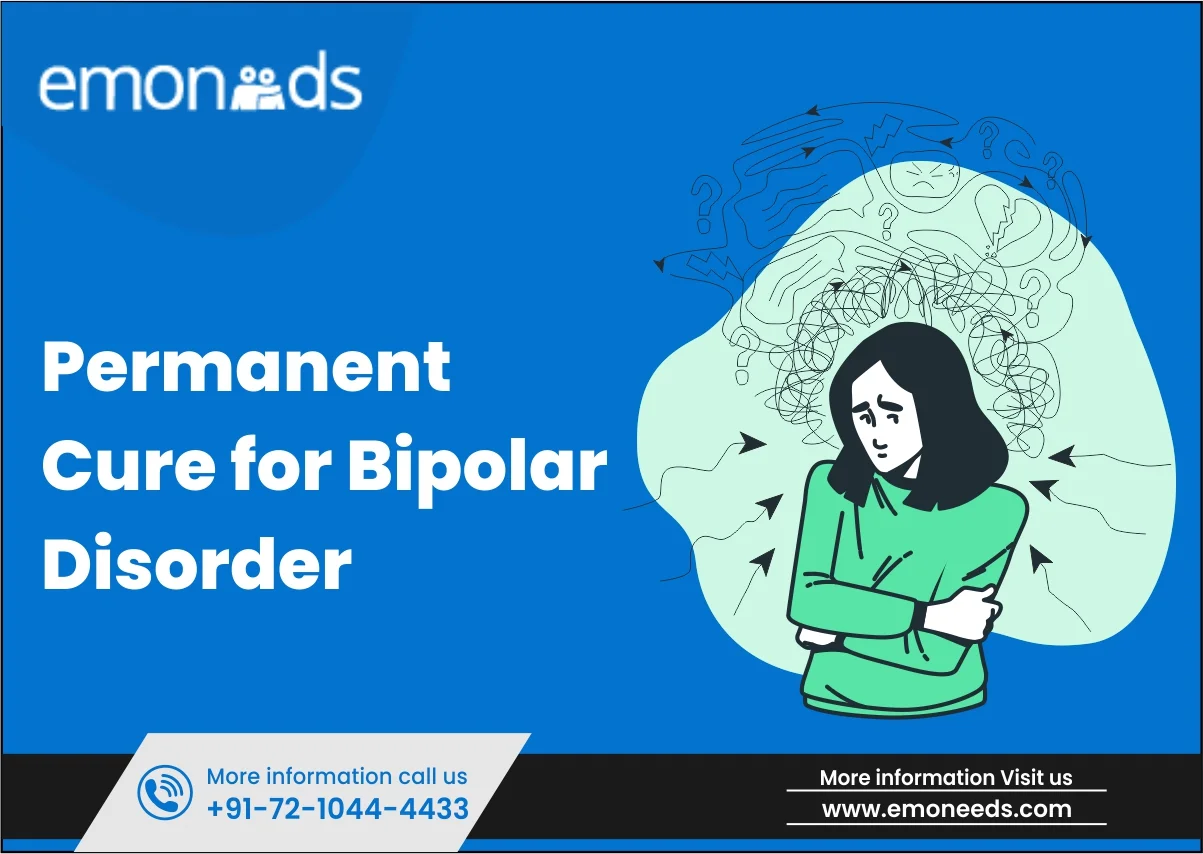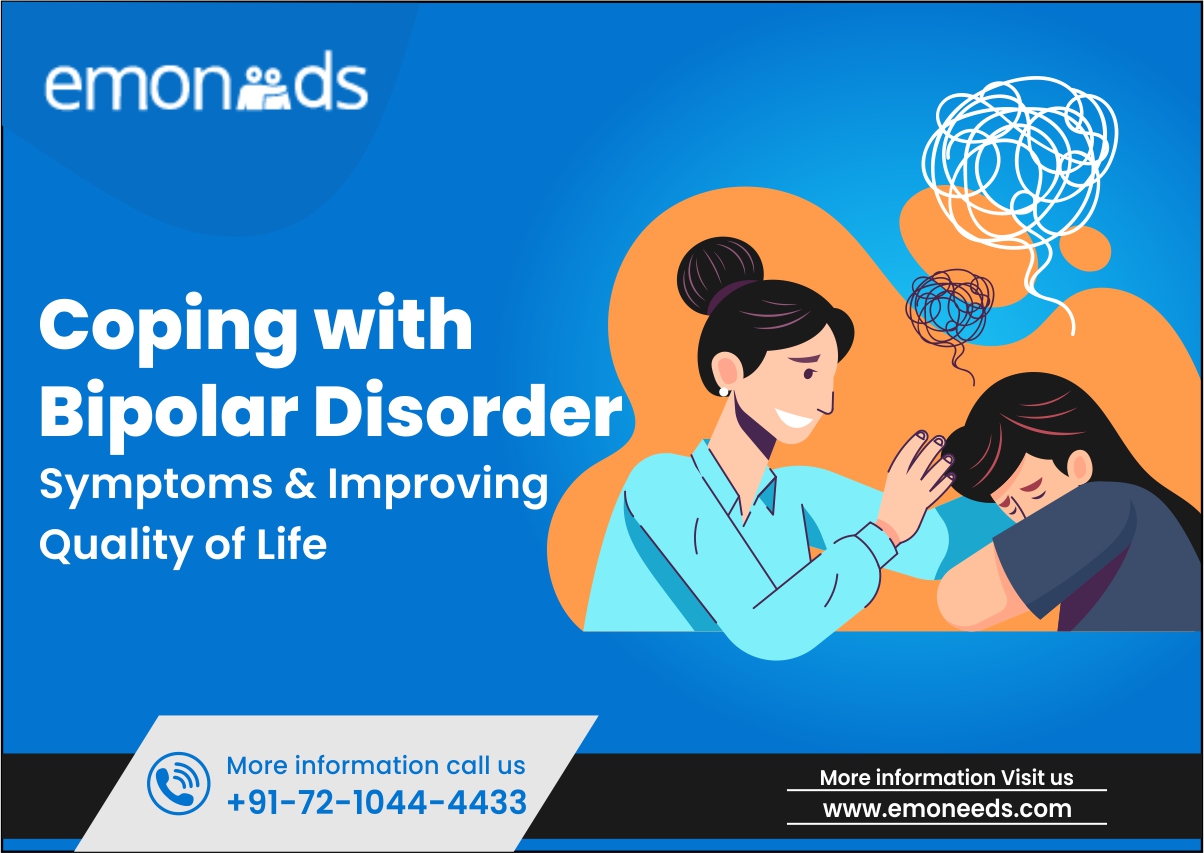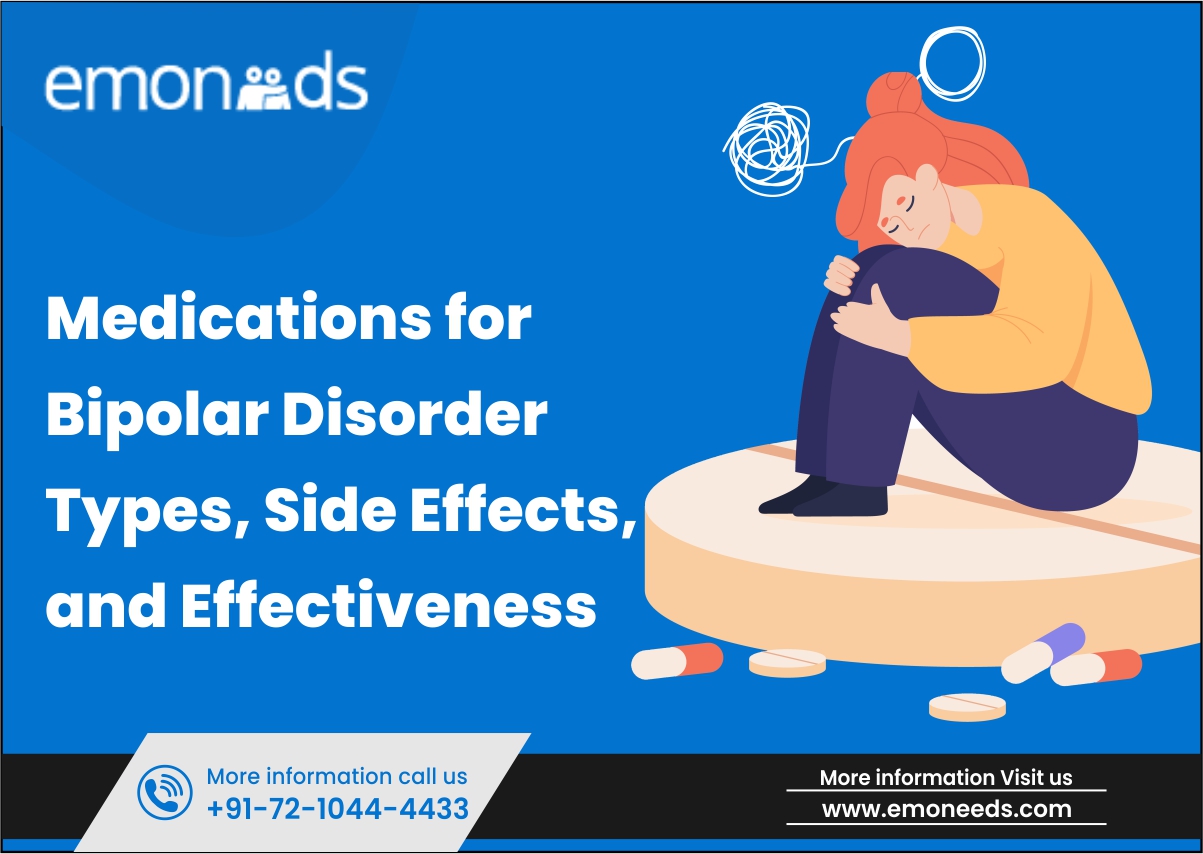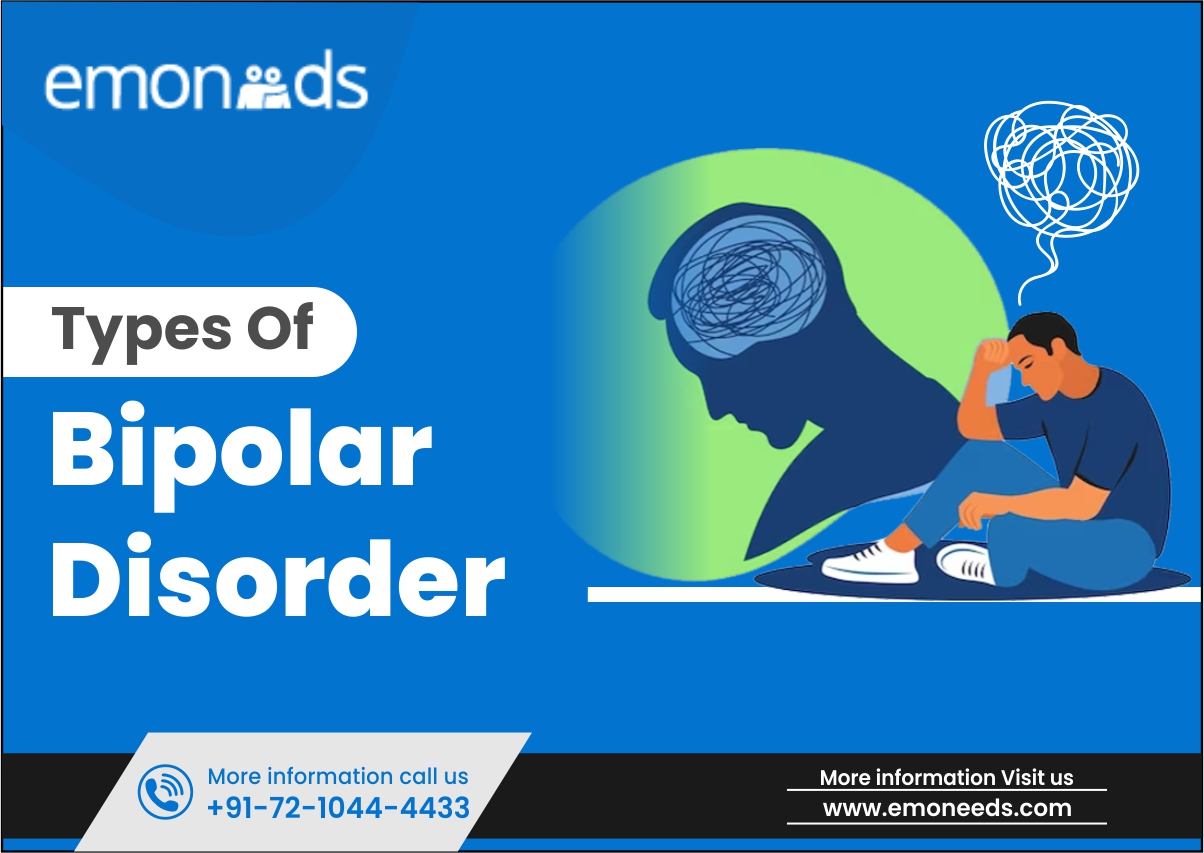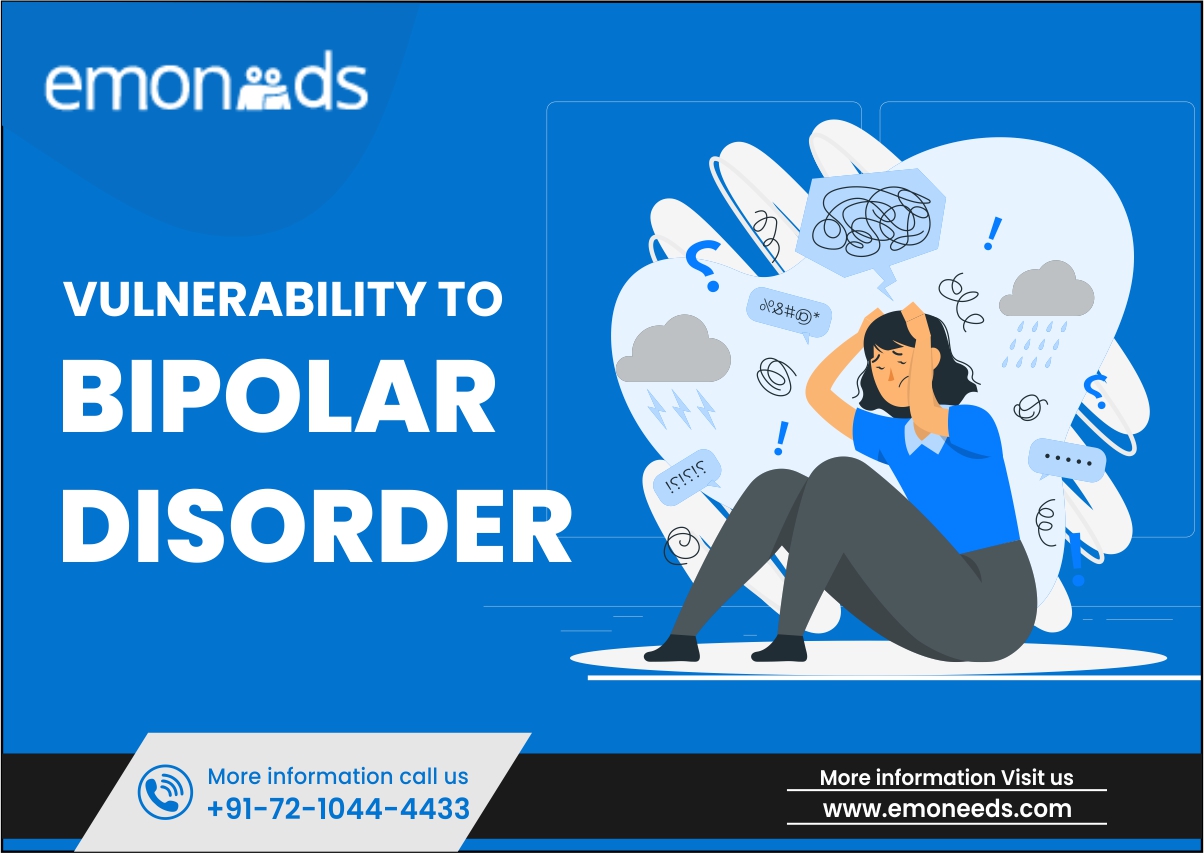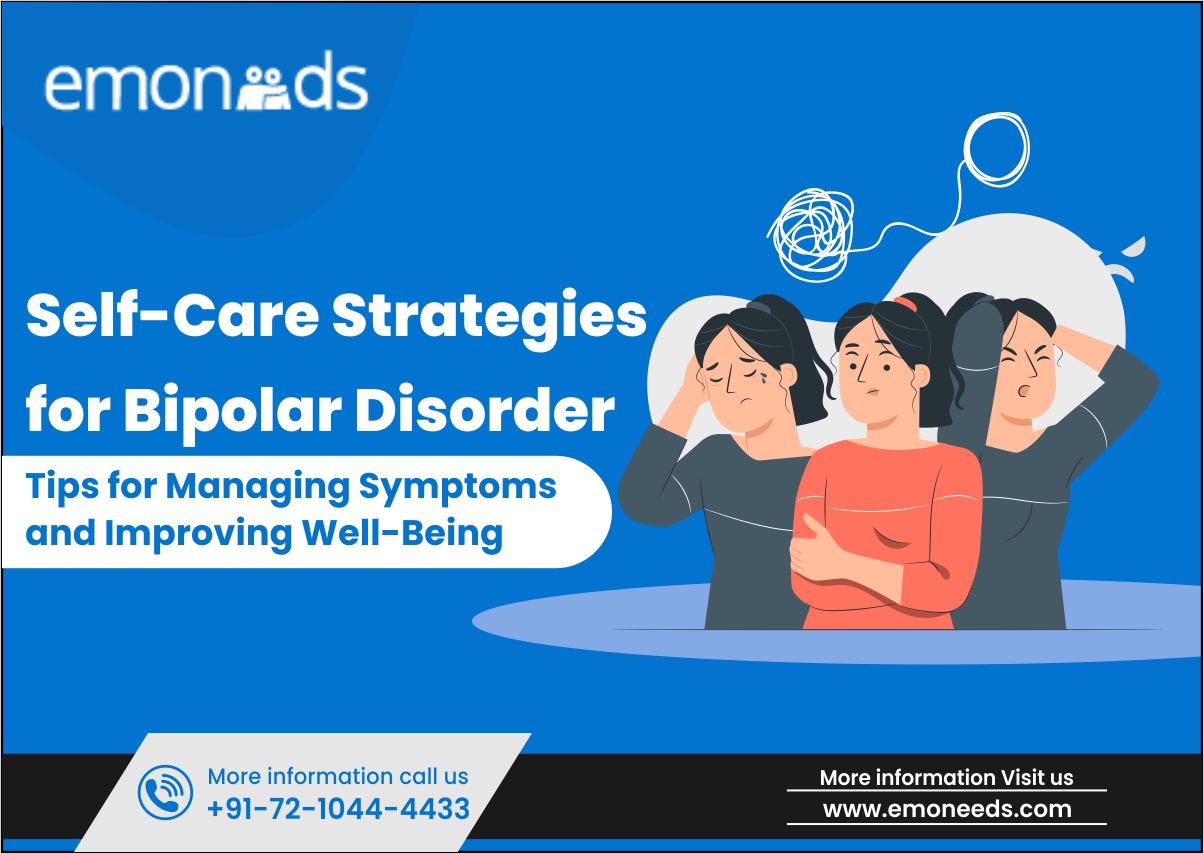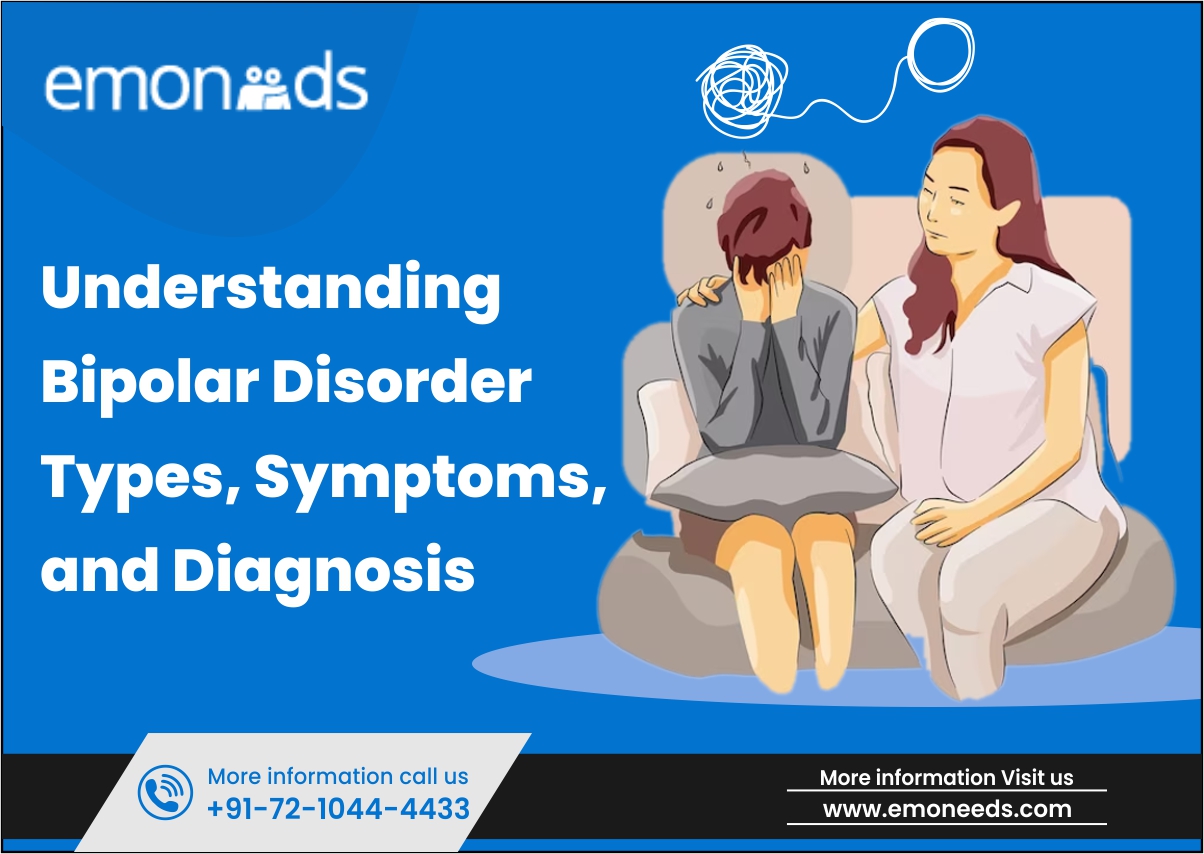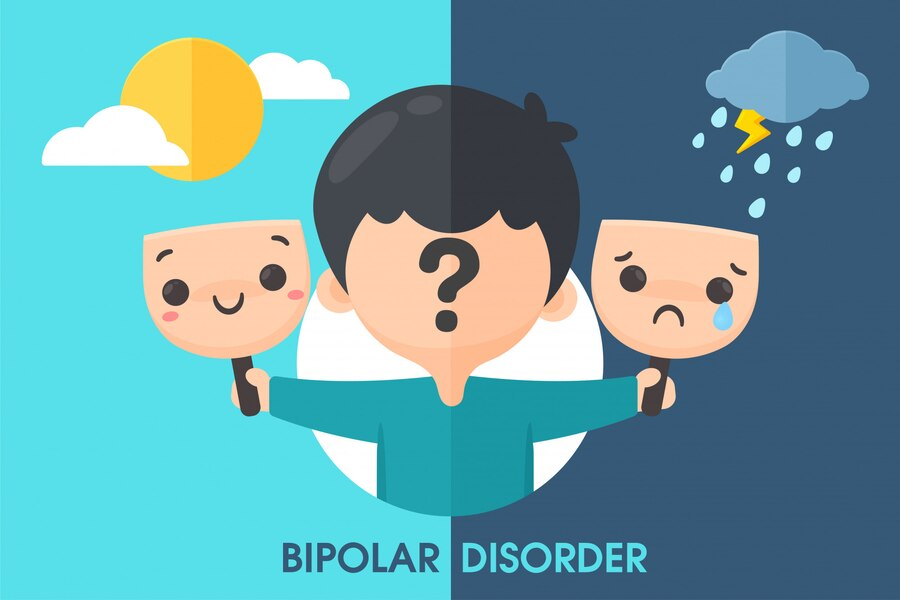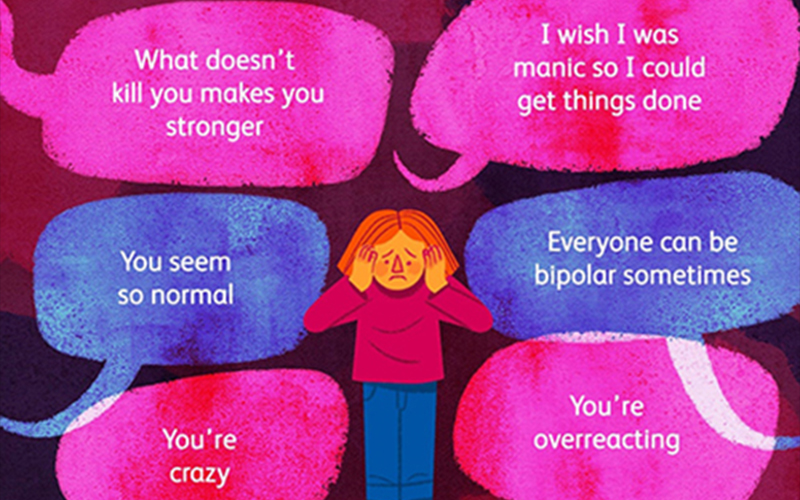
In today’s heightened awareness of mental health, bipolar disorder emerges as a significant concern impacting numerous lives. This blog aims to illuminate the landscape of bipolar disorder, emphasizing its prevalence and the critical role of bipolar disorder specialists in addressing this condition.
With a focus on clarity and guidance, we set out to help individuals find the most suitable bipolar disorder specialist, recognizing the pivotal role such professionals play in promoting mental well-being. Read this blog to gain a better understanding, support, and ultimately, to pave the way toward a more balanced and healthier life.
Understanding Bipolar Disorder
Bipolar disorder is a mental health condition characterized by extreme mood swings, encompassing highs (manic episodes) and lows (depressive episodes). Individuals with bipolar disorder may experience elevated energy levels, impulsive behavior, and heightened creativity during manic phases, contrasting with the lethargy, sadness, and loss of interest seen in depressive episodes. This cyclical nature profoundly impacts daily life, relationships, and overall well-being.
Understanding these alternating highs and lows is crucial, as it forms the basis for tailored interventions aimed at stabilizing mood fluctuations and enabling individuals to lead more fulfilling and balanced lives.
The Search for a Specialist
Finding a specialized therapist is paramount for effective bipolar disorder treatment. Much like seeking medical specialists for distinct health conditions, individuals benefit significantly from professionals with expertise in managing the complications of bipolar disorder. Just as a heart condition requires a cardiologist’s specialized care, bipolar disorder necessitates a therapist versed in its complexities.
Specialized therapists bring targeted insights, tailored interventions, and a deep understanding of this condition, enhancing the likelihood of successful treatment outcomes. In the journey toward mental well-being, the importance of seeking a specialized therapist cannot be overstated, aligning with the approach taken in the broader medical field.
Key Considerations in Your Search
In your search for a bipolar disorder specialist, several key considerations can significantly impact the effectiveness of your treatment journey.
Specialization in Bipolar Disorder
Opting for a therapist specializing in bipolar disorder is crucial. Their in-depth understanding of the complexities associated with this condition enables them to tailor interventions specifically to your needs. This specialized focus enhances the precision and effectiveness of your treatment plan.
Types of Therapy Used
Explore diverse therapy models suitable for bipolar disorder. Different therapeutic approaches, such as cognitive-behavioral therapy (CBT), dialectical behavior therapy (DBT), or other modalities, play a crucial role in managing bipolar symptoms. Understanding these options provides valuable insights into the methodologies employed, aiding in your journey towards effective bipolar disorder treatment.
Availability
Recognize the common concern of therapist availability, especially in the current surge in demand for mental health services. Practical tips on managing expectations and seeking referrals if your preferred therapist has limited availability can aid in navigating this challenge.
Cost
Get information about the financial aspect of therapy, including considerations related to insurance coverage. Gain insights into potential costs associated with therapy sessions and explore strategies to navigate financial considerations, ensuring your mental health journey remains accessible.
Location
With the advancement of telehealth services, the therapy system has evolved. Highlight the increasing prevalence of remote therapy options while emphasizing the importance of therapists being licensed to practice within your state. This ensures compliance with regulations and maintains the quality of care received.
By carefully considering these factors, you gain the ability to navigate your journey effectively in selecting the ideal bipolar disorder specialist that aligns with your specific needs and circumstances.
Where to Look for a Specialist
From checking out online platforms for convenience to relying on personal recommendations from friends and family, understanding where to look is crucial.
Online
Explore the convenience of discovering the best online doctor for bipolar disorder. Take your time browsing through listings, allowing yourself to revisit potential therapists’ profiles before making a decision. The online landscape provides a vast array of choices, empowering you to select a specialist aligned with your unique preferences and needs.
Recommendations from Family and Friends
Utilize the strength of personal networks for trustworthy therapist recommendations. Emphasize the importance of seeking advice from family and friends who have experienced success through referrals. Real-life stories underscore the value of personal connections in guiding you toward a suitable and effective bipolar disorder specialist.
Consultation with Medical Professionals
Opt for a collaborative approach by consulting with primary care doctors or a bipolar specialist psychiatrist for therapy recommendations. These healthcare professionals offer valuable insights into your overall well-being, providing informed guidance on connecting with a specialist. Highlight the benefits of integrating mental health considerations into your broader healthcare approach, ensuring a comprehensive and well-coordinated strategy for treatment.
Connecting with the Right Specialist
In your search for the perfect bipolar disorder specialist, forming connections is crucial.
Initial Consultation
Schedule initial consultations to recognize their vital role in assessing compatibility. These sessions serve as a valuable platform to understand if the therapist’s approach aligns with your needs, laying the groundwork for a collaborative and effective therapeutic partnership.
Asking the Right Questions
Asking the right questions is vital during therapist selection. A list of essential queries aids in evaluating the therapist’s suitability. These questions delve into their approach, experience, and methods. Understanding the significance of each question empowers individuals to make informed choices about their mental health care.
Understanding the Personal Connection
Beyond qualifications, the human connection matters. Recognize the significance of connecting on a personal level with your therapist. Look for signs of empathy and attentiveness – crucial elements in fostering a supportive therapeutic relationship.
Signs it’s Time to Switch Specialists
Recognizing when it’s time to switch therapists is crucial for your well-being. If you find that your current specialist isn’t addressing your needs effectively, it might be time for a change. Watch out for persistent feelings of discomfort, a lack of progress, or difficulty establishing rapport. Your emotional and mental health is paramount, and you have the right to seek a better fit for your therapeutic journey. Trust your instincts and prioritize what feels right for you. Taking charge of your mental health journey empowers you to make choices that contribute positively to your overall well-being.
Finding the right bipolar disorder specialist is a crucial journey marked by considerations like specialization and therapeutic approaches. Despite challenges, it’s crucial to maintain hope that the perfect specialist exists for everyone. This path to mental wellness requires confidence and determination.
Your mental health is a priority, and recognizing the need for a supportive bipolar specialist is a significant step. As you embark on this journey, consider connecting with Emoneeds, our online mental health platform, for tailored and accessible support. Your proactive steps today set the foundation for a brighter and healthier tomorrow.
